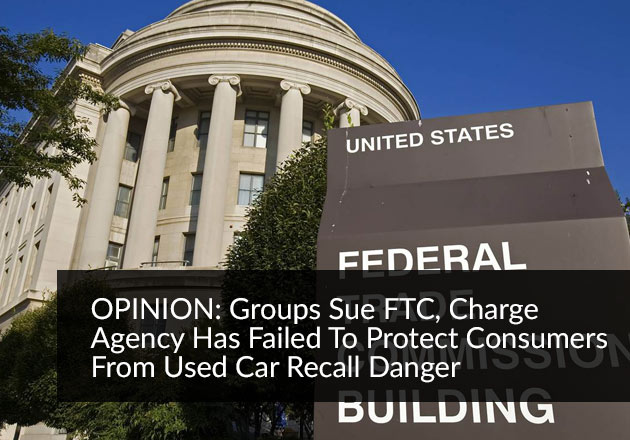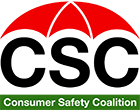
By Christopher Jensen
Forbes — Five consumer groups are suing the Federal Trade Commission over the agency’s December decision to allow automakers to say “certified” used vehicles have been carefully inspected for mechanical problems – suggesting that they are safe – despite having an outstanding recall.
The only condition set by the federal agency was that there had to be a prominent notice in an ad noting that the vehicle might have a recall that still needs to be fixed.
The suit asks the court to overturn the F.T.C.’s decision. It was filed Monday afternoon in the U.S. Court of Appeals in Washington, D.C.
The groups filing the suit are The Center for Auto Safety, Consumers for Auto Reliability and Safety (CARS), the U.S. Public Interest Research Group (PIRG), MASSPIRG, CONNPIRG, and CALPIRG.
In a statement Monday the groups said the F.T.C.’s decision “set a defacto standard for the auto industry that allows dealers to deceptively advertise cars with dangerous and potentially lethal safety defects that have killed and maimed people.”
The agency is clearly failing to protect consumers and the court needs to fix that, said Rosemary Shahan, the president of Consumers for Auto Reliability and Safety.
“Even if there is a 100 percent certainty that an unrepaired safety recall defect will immediately kill anyone who buys a so-called ‘certified’ car and their family, the F.T.C. would allow car dealers to advertise that car as ‘safe’ and ‘repaired for safety,’” said Michael Brooks, Acting Director of the Center for Auto Safety.
In 2015 the F.T.C. sued General Motors and two large auto dealerships saying that they were advertising “certified” used vehicles as being safe even though some had outstanding recalls.
Those included the deadly ignition-key defect linked to at least 124 deaths. The defect can allow the engine to be unexpectedly turned off, cutting off the power assist to the steering, brakes and disabling the air bags.
While G.M. was the only automaker named in the F.T.C. decision consumer advocates say it signals to other automakers and dealers that they can advertise used vehicles as safe despite a recall as long as there is a cautionary note.
General Motors and the two dealerships neither admitted nor denied any wrongdoing. But they agreed to the F.T.C.’s solution: requiring a notice that there may be an outstanding recall.
General Motors said even before the settlement it told dealers that recalls had to be carried out on certified used vehicles before they could be sold.
“We haven’t reviewed the lawsuit yet. But we want to reassure consumers that vehicles with open recalls are not eligible for our Certified Pre-Owned program, and that has long been the case,” G.M. spokesman James Cain said Monday.
Consumers groups as well as five U.S. senators criticized the agency for the deal, saying it had failed to carry out its mandated duty.
